
Mar 1 , 2024
By Harold James
Harold James, a professor of History and International Affairs at Princeton University, is the author of the book, "The War of Words: A Glossary of Globalisation." This article is provided by Project Syndicate (PS).
Since global financial stability ought to be considered a public good, many international institutions devote themselves to establishing the conditions to sustain it. Geopolitical conflict, however, often brings a change in thinking: suddenly, instability becomes a useful tool for protecting one's own interests in a zero-sum global competition. In our current era of trade wars, cross-border supply chains, and restrictions on access to key technologies – call it "geotechnopolitics" – a newer version of this old dynamic is emerging. If history is any guide, financial war is around the corner.
In the 20th Century, both world wars were preceded by the formation of rival blocs and an increase in targeted financial attacks. As diplomatic tensions escalated, each side tried to undermine the other's capacities through a financial war of attrition. Hence, financial mobilisation preceded military mobilisation in the run-up to 1914.
For example, during the Second Moroccan Crisis of 1911, France responded to Germany's deployment of a gunboat to the coastal city of Agadir by orchestrating a rapid selloff of German securities, triggering financial panic in Germany. At the same time, Austria-Hungary, whose businesses wanted to tap the French capital market, abandoned its German ally and lined up with Paris. As a result, Germany felt less secure about Austrian support and more determined to invent economic issues that would force the Habsburg Empire back to its side.
Financial attacks even more conspicuously marked the path to war in 1939.
The Great Depression had shown how panics and bank collapses could demoralise and destroy entire countries, and strategists had an obvious weapon at their disposal. Since collapses in bond prices or currency outflows would force governments to adopt austerity as a fiscal countermeasure, creating a financial crisis was an effective way to reduce a rival's spending on defence (always the largest budget item). Thus, from 1936, German economic planners repeatedly used an Amsterdam bank to launch attacks on the French franc, ultimately succeeding in constraining France's military budget.
This financial mobilisation for war set the trap that closed on France when Nazi Germany invaded in 1940.
Amid the heightened global tensions following the COVID-19 pandemic and Russia's invasion of Ukraine in 2022, it is reasonable to worry that the international order is collapsing, and that other priorities have displaced the pursuit of financial stability as a global public good. Old strategies for winning a zero-sum game are re-emerging, and financial warfare has returned with a vengeance in the form of sanctions.
Indeed, it appears to be only a matter of time before hostile financial speculation joins the hybrid-warfare arsenal, alongside cyberattacks and mass disinformation. A tighter interest-rate environment has made bond market turmoil more likely. Conditions are ripe for financial attacks.
The vulnerabilities are evident worldwide. The low-interest-rate regime of the past 15 years has fueled construction booms worldwide; but, COVID-19 changed living and working patterns, driving an indefinite shift in expectations about how buildings and related infrastructure will be used (if they are used at all). Commercial real estate has been especially vulnerable with the decline of office work in major city centres. We are already witnessing the spectacular collapse of leading real-estate developers such as Evergrande in China and Signa in Austria and Central Europe.
Turmoil is also hitting stock markets. The Russian MOEX Index fell by more than 50pc in the year after October 2021; though it started to rally in October 2022, it is now faltering again. Similarly, China's Shanghai Composite Index fell by almost one-third from September 2021 to the end of January 2024. Since then, Chinese authorities have been intervening with increasingly sweeping measures to curb speculation and halt the collapse. The situation in Hong Kong – the key financial intermediary between China and the world – looks even worse.
One could interpret these market signals as a financial verdict against Russia and China. After all, the geopolitical West looks fine: the Japanese Nikkei, along with European and US stock markets, is running hot, and commercial real-estate woes have not led to any form of generalised panic. Western institutions increasingly pride themselves on ensuring financial and economic resilience.
It is hard to think of any method geopolitical rivals could deploy to trigger a collapse in the wider West. There is no obvious equivalent of the Amsterdam bank of the 1930s dumping the French franc in a precisely timed attack designed to soften up the enemy before an invasion.
All that remains is rhetoric. Like so much else, finance follows constructed narratives that can change abruptly, provoking a general revaluation. The most fascinating – and revealing – part of Russian President Vladimir Putin's bizarre interview with the right-wing American pundit Tucker Carlson this month was not his raving tour through a millennium of Russian history; it was his obvious attempt to rewrite the financial market narrative.
Putin started by observing that "The Dollar is the cornerstone of the United States' power." He then sketched a scenario where the world would turn on the Dollar and emasculate an enfeebled America: "But they won't stop printing. What does the debt of 33 trillion dollars tell us about? It is about the issuance." Make no mistake, this was a call for an attack on America's dominant financial position. True, it is easy to write off Putin's bluster. He did something similar with his previous threats of nuclear war, and the potency of that brinkmanship waned quickly.
With global financial vulnerabilities sure to continue mounting, however, hostilities in this theatre of hybrid war seem much more plausible than the use of nuclear weapons. America's rivals, we can be sure, will increasingly rely on narrative power to pry open cracks in major Western markets.
PUBLISHED ON
Mar 01,2024 [ VOL
24 , NO
1244]
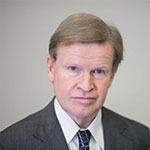
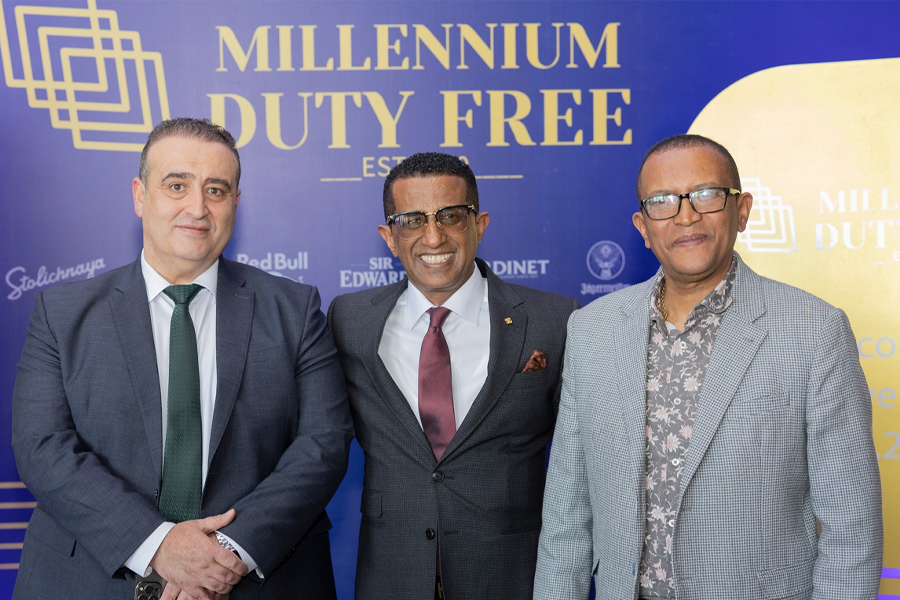
Radar | Oct 27,2024
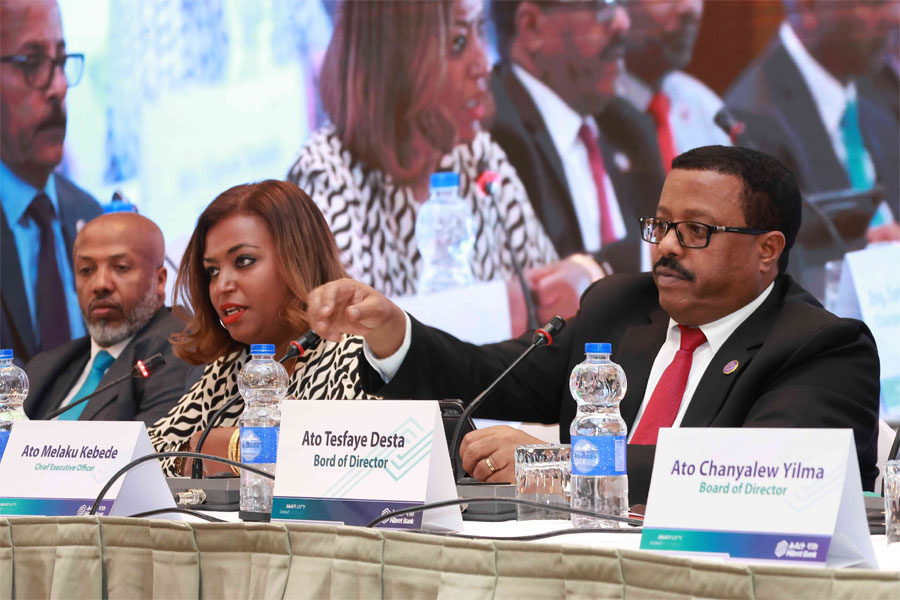
News Analysis | Dec 23,2023
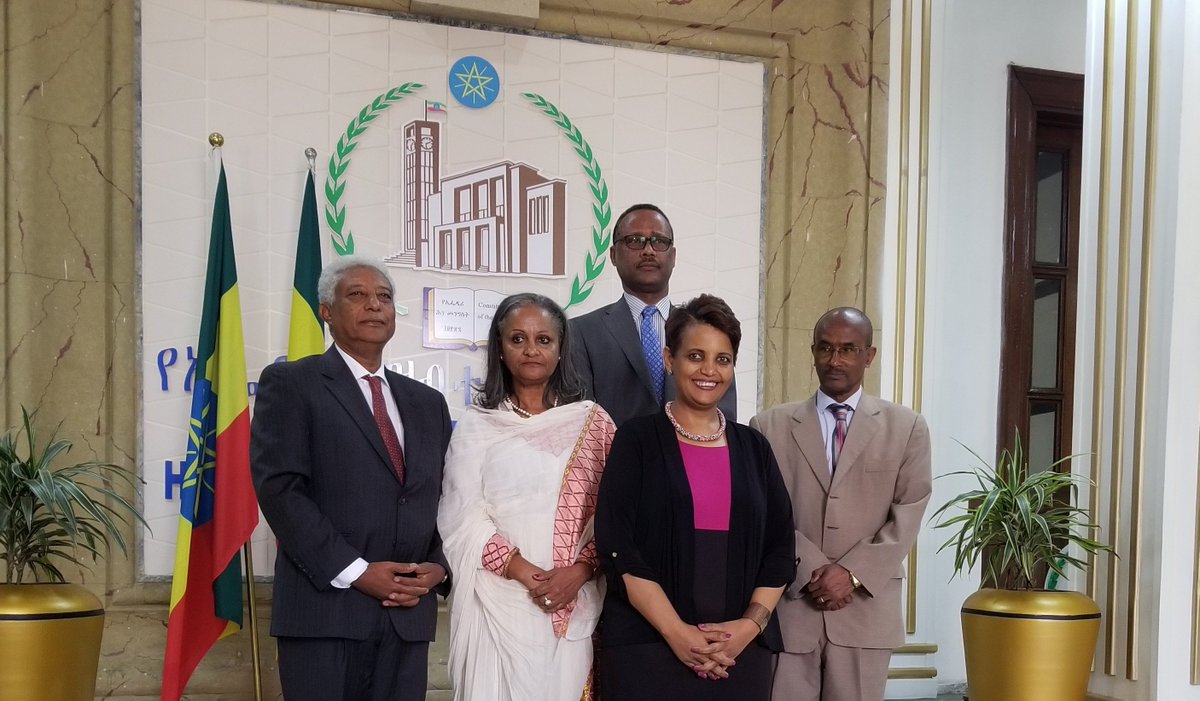
Election 2021 coverage | Jan 13,2020

Radar | Jan 18,2020

Viewpoints | Dec 25,2021

Radar | Jun 15,2025

Fortune News | Nov 02,2019
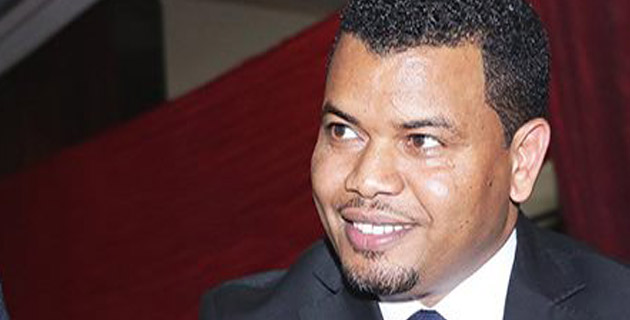
Radar | Jan 25,2020

Radar | Dec 19,2018

Fortune News | Jul 24,2021

My Opinion | 131658 Views | Aug 14,2021

My Opinion | 128022 Views | Aug 21,2021

My Opinion | 125985 Views | Sep 10,2021

My Opinion | 123609 Views | Aug 07,2021

Dec 22 , 2024 . By TIZITA SHEWAFERAW
Charged with transforming colossal state-owned enterprises into modern and competitiv...

Aug 18 , 2024 . By AKSAH ITALO
Although predictable Yonas Zerihun's job in the ride-hailing service is not immune to...

Jul 28 , 2024 . By TIZITA SHEWAFERAW
Unhabitual, perhaps too many, Samuel Gebreyohannes, 38, used to occasionally enjoy a couple of beers at breakfast. However, he recently swit...

Jul 13 , 2024 . By AKSAH ITALO
Investors who rely on tractors, trucks, and field vehicles for commuting, transporting commodities, and f...

Jun 28 , 2025
Meseret Damtie, the assertive auditor general, has never been shy about naming names...

Jun 21 , 2025
A well-worn adage says, “Budget is not destiny, but it is direction.” Examining t...

Jun 14 , 2025
Yet again, the Horn of Africa is bracing for trouble. A region already frayed by wars...

Jun 7 , 2025
Few promises shine brighter in Addis Abeba than the pledge of a roof for every family...

Jun 29 , 2025
Addis Abeba's first rains have coincided with a sweeping rise in private school tuition, prompting the city's education...

Jun 29 , 2025 . By BEZAWIT HULUAGER
Central Bank Governor Mamo Mihretu claimed a bold reconfiguration of monetary policy...

Jun 29 , 2025 . By BEZAWIT HULUAGER
The federal government is betting on a sweeping overhaul of the driver licensing regi...

Jun 29 , 2025 . By NAHOM AYELE
Gadaa Bank has listed 1.2 million shares on the Ethiopian Securities Exchange (ESX),...